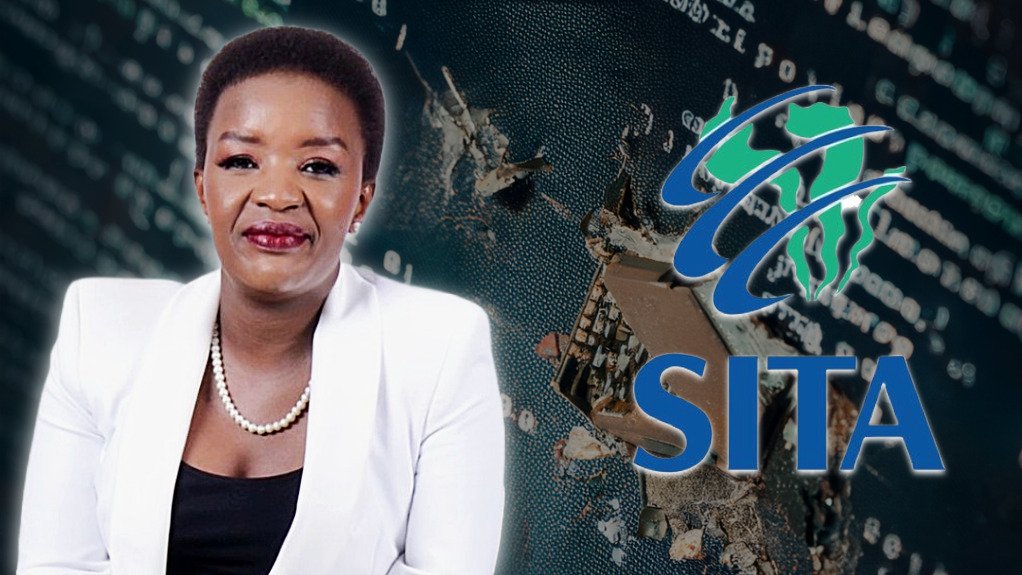Efforts to create a capable State will be in vain if South Africa does not have the systems available to support it, Business Leadership South Africa CEO Busisiwe Mavuso has said.
In her weekly newsletter on April 14, she pointed to a fundamental constraint on the ability of the public sector to embrace digital efficiencies, which is the State Information Technology Agency (Sita).
“Those of us in business know that technology is critical to competitiveness. Without good systems you cannot effectively deliver for your clients. This is equally true in the public sector.
“IT enables the public service to effectively meet the needs of citizens and ensure government can function efficiently,” Mavuso said.
She noted that Sita has been bedevilled by allegations of corruption and mismanagement, leadership instability, irregular procurement processes and frequent complaints from government departments about the quality of service delivery.
Proposals by Communications and Digital Technologies Minister Solly Malatsi to change regulations to empower State entities to appoint their own IT service providers rather than being forced to use Sita have met with strong opposition from members of parliament (MPs).
However, Mavuso said the ability of government to embrace and work with world class IT systems is too important to politicise the issue, despite the new regulations having strong support from Ministers across the Government of National Unity.
“In the effort to rebuild government into a capable State, IT must play a fundamental part. Departments, ranging from Home Affairs to the South African Police Service, have highlighted how improved use of IT could transform their ability to deliver by ensuring fast and effective systems,” she said.
However, Sita’s service delivery failures are a spanner in the works.
“Unfortunately, efforts to reform Sita have become embroiled in party politics,” Mavuso bemoaned.
She questioned why MPs opposed Malatsi’s proposals because they were fully aware of Sita’s shortcomings owing to the findings of a report by the Portfolio Committee on Communications and Digital Technologies published last December.
“The need to equip government departments with the ability to commission their own IT services directly is obvious. The proposed regulations set out clear conditions for a department to procure services from outside of Sita, including a strong and viable business case to do so,” Mavuso noted, adding that departments have long called for the right to do so, citing the long delays in getting things done with Sita, in addition to cost inefficiencies.
She pointed to a clear example of what can happen when public institutions are empowered to manage their own systems: the South African Revenue Service (Sars).
“Today Sars is a global success story of effective IT systems in a tax collection agency. Taxpayers can get assessments done in seconds and payments happen in quick succession.
“It is studied by both emerging and developed market revenue authorities as an example of excellence. Sars’s ability to procure and manage its own IT systems has been key to that outcome,” Mavuso said.
Sars is exempt from the Sita Act because it is classed as a State-owned enterprise and therefore is not forced to procure through Sita.
Mavuso pointed out that the Department of Home Affairs, in particular, has complained about the impact of systems failures on its ability to deliver for citizens, both in the current administration and under previous Ministers.
“The example of Sars stands out as a beacon of what is possible and many government institutions are eager to follow it. I worry about whether Home Affairs can possibly deliver on the critical functions it must be able to perform within the current IT procurement framework,” Mavuso said.
The National Development Plan sets out that a capable State “requires leadership, sound policies, skilled managers and workers, clear lines of accountability, appropriate systems and consistent and fair application of rules”.
“Appropriate systems are a critical ingredient. Empowering departments to manage their own IT procurement is a key step. But we should also aim to ensure that Sita itself becomes effective and is able to compete to provide services to the public sector,” Mavuso said.
She said that granting departments the ability to choose whether they would like to patronise Sita or not would result in some healthy competitive pressure to enable Sita to sort out its leadership issues.
“The digital world is obviously evolving fast. AI, blockchain, platform economies and expanding digital infrastructure, among much else, are disrupting many business models. All of these provide opportunities for the public sector to embrace innovation and improve the quality of services that South Africans get from their government,” Mavuso said.
She said that, as part of the effort to build a capable State, South Africa needed to empower its civil servants to access the best technology and ensure it supports their service delivery objectives.
“This must not be undermined by political point scoring. We need a new and effective approach to empowering government to put the best systems in place,” Mavuso said.
EMAIL THIS ARTICLE SAVE THIS ARTICLE ARTICLE ENQUIRY FEEDBACK
To subscribe email subscriptions@creamermedia.co.za or click here
To advertise email advertising@creamermedia.co.za or click here











